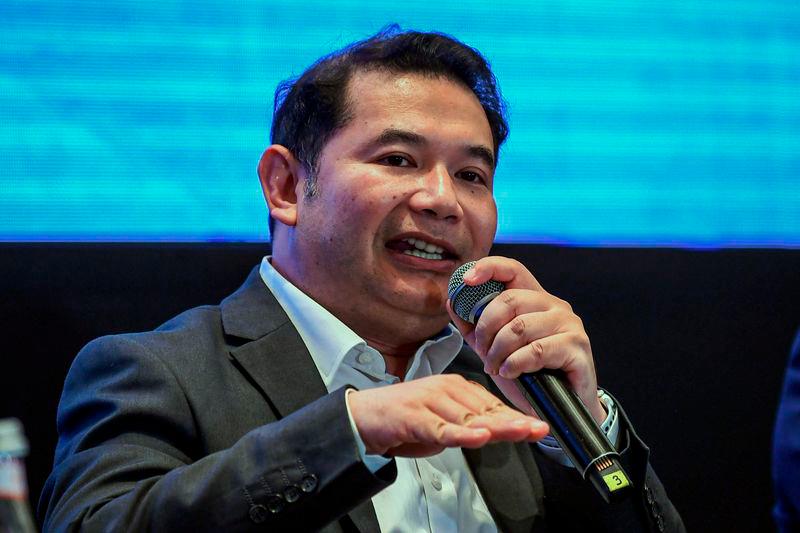KUALA LUMPUR: The government still has room to optimise its spending although there is a need to increase revenue, said Economy Minister Rafizi Ramli.
He said it is important to demonstrate optimisation of government spending but at the same time, the country’s economy needs to grow so that the people’s income can rise to a certain level and that discussions to generate revenue have to be benchmarked against these two factors.
“We have been talking about how to (rationalise government expenditure, (especially) subsidies. We are going through that process (now). I think that’s the position that the government takes now. We will just have to wait for the Prime Minister’s announcement for the budget this Friday,“ he told reporters after the launch of the World Bank’s 30th Malaysia Economic Monitor here today.
Rafizi said the government could have ever-increasing development budget spending, but if it did not optimise the cost or get the best value out of every RM1 spent, the outcome would still be a shortfall as far as the public is concerned.
At the macro level, he noted that government spending may not have the desired spillover effect on the economy, especially in social services, education, health, and talent upskilling. “So we are going through that process now to recalibrate our spending and that includes, for example, benchmarking costing. We want to make sure that every ringgit that the government spends is actually what is the most comparable cost market-wide,“ he added.
On RON95 subsidy reforms and meeting a fiscal deficit target of 4.2 per cent of gross domestic product this year, Rafizi said Malaysia has “slightly more room” to navigate to meet its fiscal target.
“Certain things have changed. For example, with the higher economic growth, we (now) have slightly more room to navigate to meet our fiscal target but there are also certain changes, like the strengthening of the ringgit that also mean less pressure on subsidy bills.
“But I think what is most important to the government is to balance everything because all these parameters are interconnected,“ he added.
Malaysia’s agriculture sector
Earlier in his speech, Rafizi acknowledged that the agriculture industry has suffered from a modernisation gap.
In terms of productivity, he noted that the value added per hour worked has declined to RM24.8 in 2023 from RM25.2 in 2015, whereas manufacturing and services were roughly twice as productive.
“This has a downward pressure on wages. A sector where employment is still growing at 4.2 per cent but most of it comes from rural areas. This has destructive social implications. You are condemning people with lower wages, worsening the rural-urban divide, and exacerbating this sense of being left behind,“ he said.
Rafizi warned that the failure to address the issue would leave the country with a “Detroit dilemma”, where the US city with the automobile industry was decimated, causing a backlash at the ballot box.
“For us, the case for modernisation isn’t just good economics. There is a real social impetus for the government to act quickly,“ he said.
Rafizi also noted that Malaysia currently has a population of about 34 million people which is set to increase to 45 million by 2050 and at the same time, the government has to contend with import dependence.
In 2022, Malaysia’s food trade deficit was about RM31 billion as the country imported 1.7 times the value of food it exported.
“This has a squeezing effect. With more people in Malaysia, there will be a greater demand for imported food to sustain consumption. However, it also poses a security threat - not just for food, but the functioning of the economy. With many countries reverting to protectionism, we have to seriously question if we have the adequate capacity and supply to feed ourselves?” Rafizi asked.
He said solving the issue required building a new economic argument for agriculture and the government’s ambition is to revive and refocus agriculture as a growth driver for the new economy. Increasing productivity results in higher wages and output, which would minimise social division and food dependence, he added.









